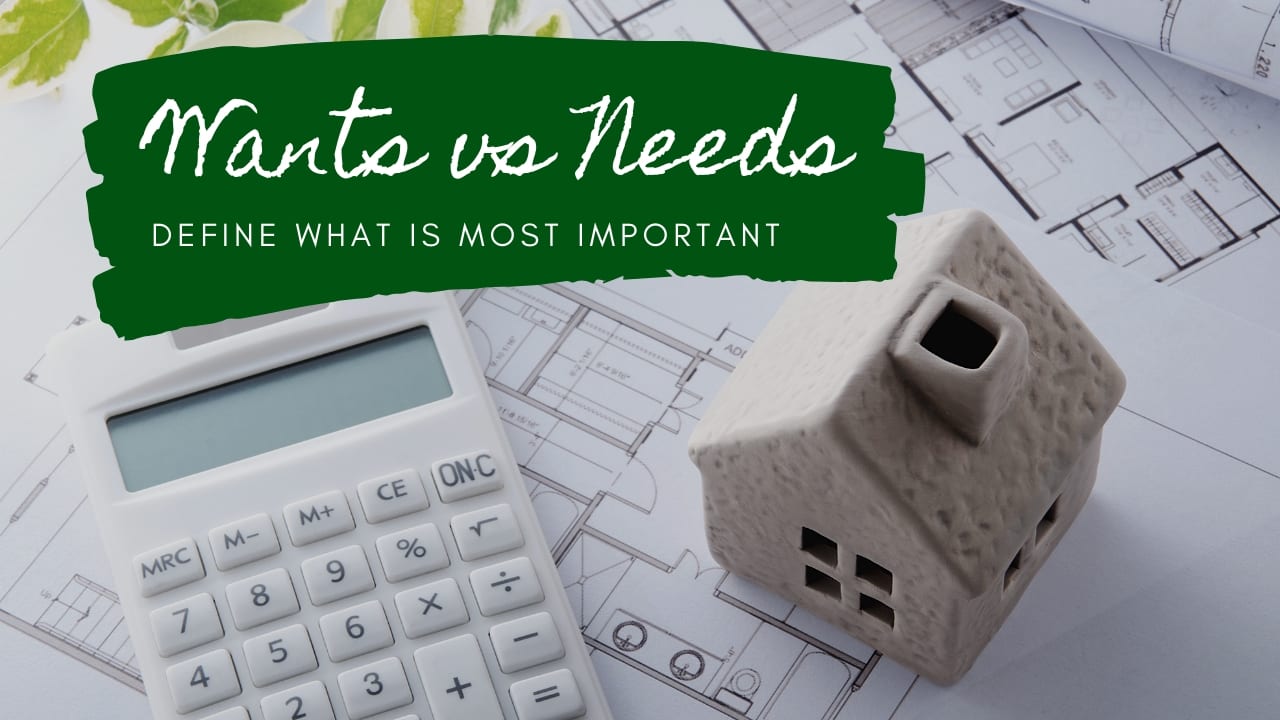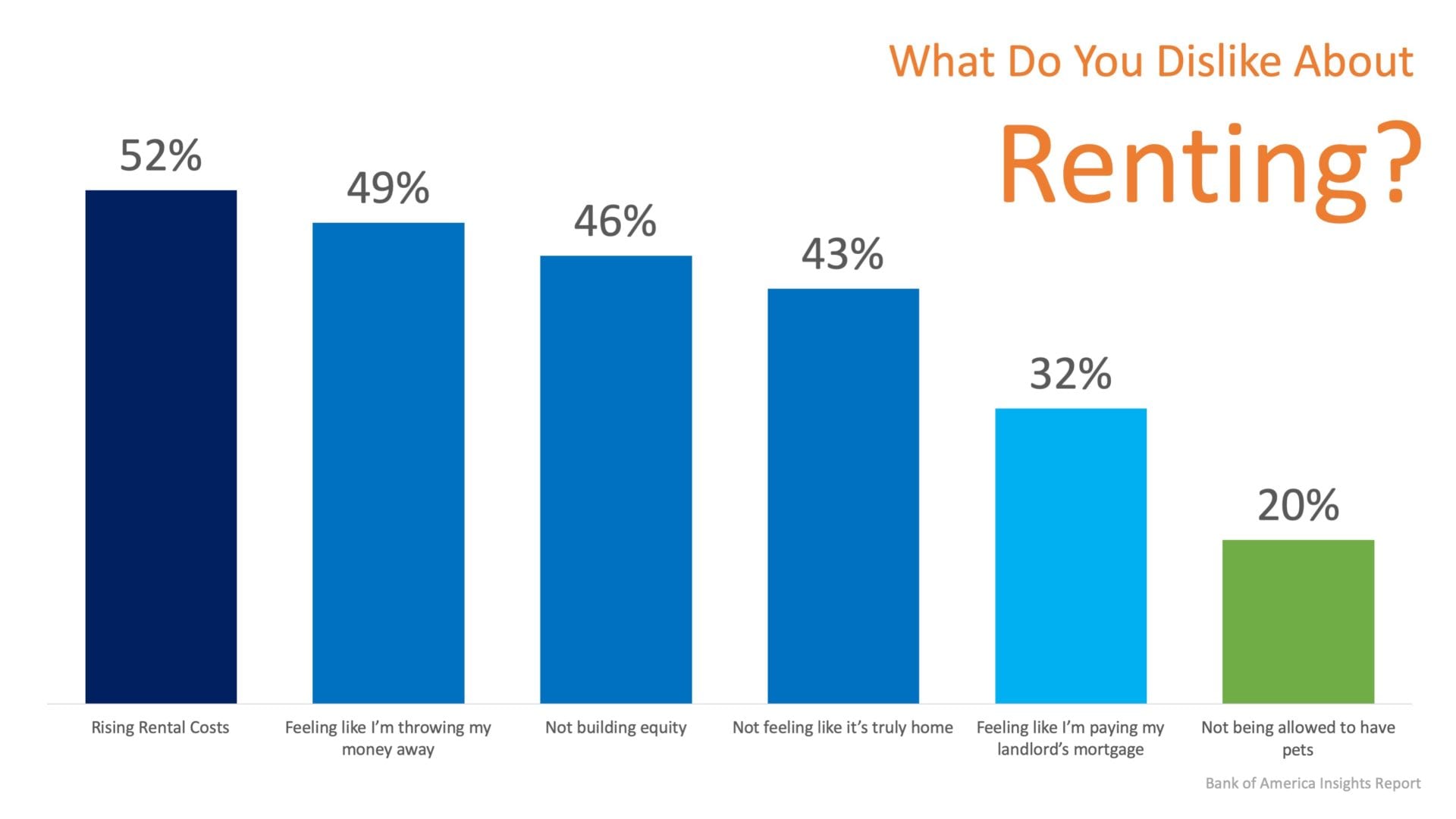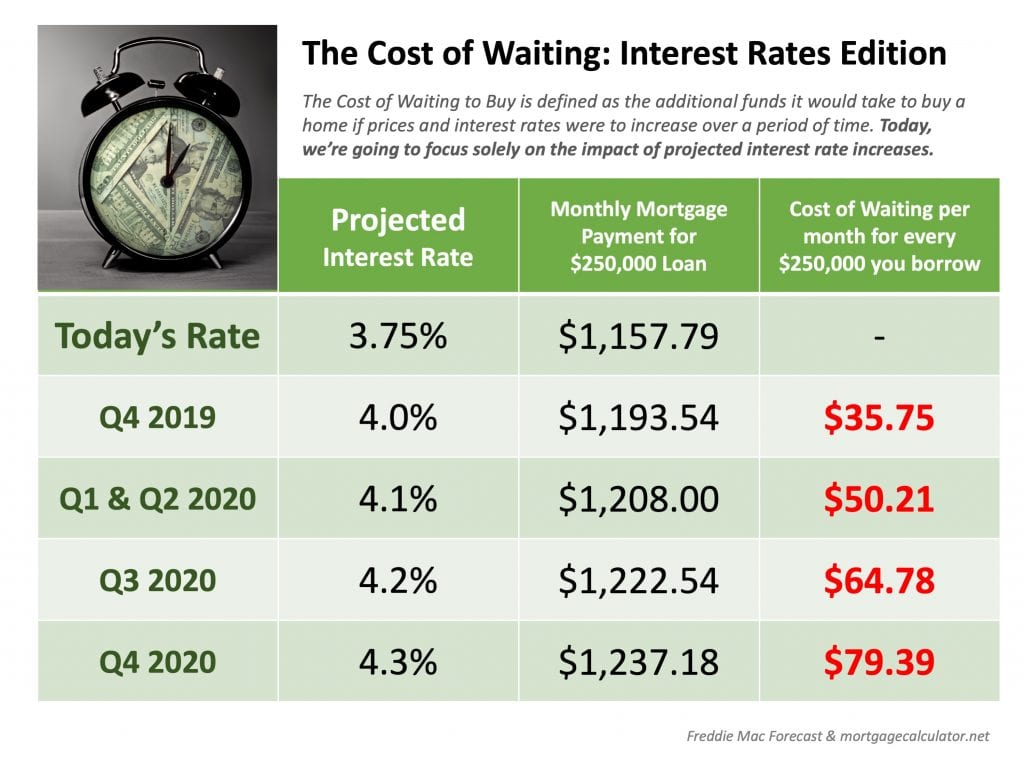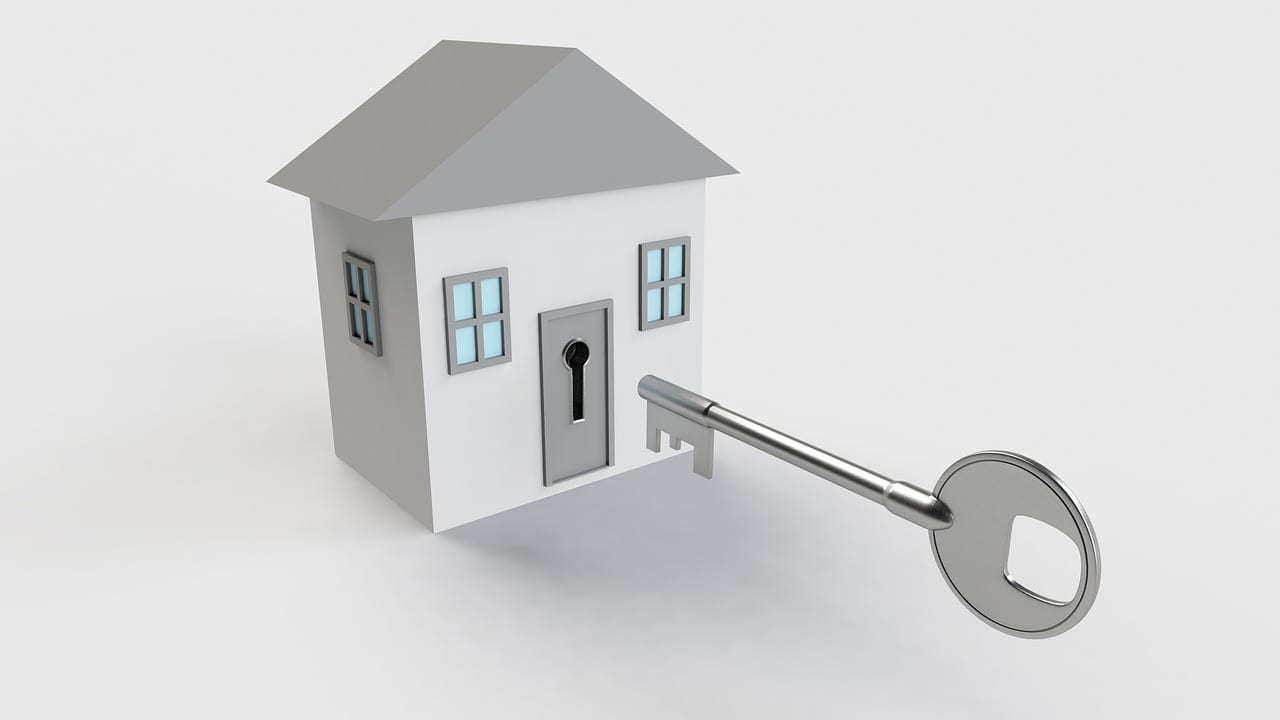[email protected] Call or Text 352-478-8029
Let's Get Savvy!
Click any button to get started

Would you like our Free Home Buying Checklist?
Click to download your copy now. We will also send you a series of next steps to get you started.
What are the Steps to Home Ownership?
Buy with confidence! Your pathway to home ownership goes much smoother when you understand the process. Familiarize yourself with what is required of you, as well as every other person involved in the transaction.
Our goal is to provide you with the information you will need to make the best decision for you and your family in regards to homeownership. Buying a home is one of the most significant purchases you will make. Before doing so, you will want to research and prepare. Use the links below to help inform you of the steps to buying a home and how to avoid costly mistakes!
Is now the right time to buy?
Florida surpassed New York in 2018 to become the third most populated state in the US. IRS’ Statistics of Income Division show there are five leading states with mass migration to FL. The sunshine state offers a work-life balance and increased economic opportunity. The growth puts a demand on housing. Demand means home prices move up or stay consistently stable depending upon other economic factors.
Now is the time to take advantage of low-interest rates and available home buyer programs!
If you want to see the hard evidence, view Rent Vs. Buy


Purchasing property is a process that involves crucial steps and includes many professionals. It may seem overwhelming, so we broke down the core list of professionals you will partner with throughout your journey and a brief description of their role.
Real Estate Agents & Brokers
A Realtor® finds prospective properties and makes an offer to the seller on your behalf and
assists you through the home buying and closing process.
Mortgage Lender
The role of a mortgage company is to lend funds for buying a property. Lenders manage the credit and financial review of the person(s) buying from the loan application through closing. A lender can be private, a bank, or other financial institution.
Mortgage Broker
Independent finance professional who provides you with different products and services so you can compare different mortgage products from several lenders. The broker charges you a fee that may also be paid by the lender if they agree.
Home Inspectors
They evaluate the condition of the home being purchased by examining the plumbing, electrical systems, structure, foundation, windows, doors, roof, AC, and more.
Appraiser
An appraiser inspects, photographs and completes reports on a home's value. The lender will require an appraisal if the home is being financed. If the buyer it is not necessary to have one completed though it is highly recommended.
Closing Agent
The title agent is essential to finalizing a real estate transactions. They collect escrow deposits, handle closing documents, and get all relevant parties to sign the appropriate papers when it is time to settle. They oversee the disbursement of funds on the transaction.
How to Buy a Home
Why Pre-Approval Should be your First Step
A pre-approval is a letter from your lender indicating that you qualify for a mortgage up to a specific amount.
It will help you determine your buying power, approximate down payment, estimated monthly mortgage payments with taxes and interest.
With this vital document in hand, you will have confidence and the negotiating ability needed in competitive markets. Sellers know you are serious about buying when they see your pre-approval letter accompanying the offer.
Often-times buyers will use an online mortgage calculator to understand how much home they can afford. Then try to find properties without having a formal pre-qualification completed by a lender.
Most real estate agents and sellers will not show homes without knowing you are a qualified buyer. If you are a cash buyer with documentation, you do not need to go through the financing process.
Mortgage Calculator
[srzmort id=1]
How is the Mortgage Loan Amount Determined?
When lenders are determining your loan amount and interest rate, they take a look at several factors. One of the most important is your debt-to-income ratio (DTI). Most mortgage companies require that less than 28% of your pretax income is spent on housing and 36% on total debt payments.
Other factors loan officers consider for loan qualification:
Credit Score:
A number ranging from 300-850, based on an analysis of your credit history. Helps lenders determine the likelihood that you’ll repay future debts. Most lenders require a minimum of a 620 to 640 credit score.
Credit:
Your history of paying bills and other debts on time
Down Payment:
This is typically 3-20% of the purchase price of the home. If you are applying for a conventional loan or you are purchasing the home for investment purposes you will need 20% down. FHA loans can go as low at 3.5% down. Some of 0% down programs also exist, ask your lender for more information.
Interest Rate:
The interest rate you pay on the money you borrow to buy your house. The lower the credit score the better the rate.
Capacity:
Your current and future ability to make payments
Capital or Cash Reserves:
Money, savings, and investments you have that can be quickly used, sold or converted to cash
Collateral:
The home or type of home that you would like to purchase
Closing Costs:
The cost to complete the real estate transaction. They average between 2-7% of the purchase price, not including the down payment and paid at closing. They include points, taxes, title insurance, financing costs, and items that must be prepaid or escrowed.
What is included in buyer closing costs?
**An appraisal is a professional analysis used to estimate the value of the home. It is a necessary step in validating the home’s worth to secure financing.
You may be able to obtain closing cost assistance from the seller, through lender credit or a down payment assistance program. Another negotiation tactic would be to offer more on the property and then ask the seller for closing cost assistance. Ensure you understand all of the options or rules associated with any help requested. Restrictions may apply.
Once you have selected a lender, you will need to fill out their loan application and provide them with necessary information regarding “your credit, debt, work history, down payment, and residential history.” Once you apply do not make any major purchases or apply for additional credit.
Learn more about associated costs, various mortgage options, including down payment assistance programs that may be available to you.

What You Want Vs What You Need
Costs add up! It is good to understand the budget you have to work within and ensure you have the funds to purchase and move into your home without being house poor.
Define your goals by envisioning your lifestyle and write down what you want in your home. After you make your list, mark what are absolute must-haves and what you would be willing to compromise on.
Your home search will be easier when you define your goals. For more insightful information on How to Homeshop click here.

Partnering with a Real Estate Agent
Technology today offers consumers the ability to search for real estate online. There’s more to real estate than finding a house you like on the internet! Shows like Property Brothers, Fixer Upper, and dozens more on HGTV have given many a false sense of what it’s like to buy and sell a home.
Buying and selling property is a very involved process. No two homes are exactly alike, and no two transactions are the same. Real estate professionals are there with you from the home search to the closing and they cost you nothing! The seller pays all of the commission.
You need an expert who is going to guide you toward your dreams and not let anything get in the way of achieving them. There are over 230 possible steps that need to take place during every successful real estate transaction.
You Need a Skilled Negotiator
Hiring a talented negotiator could save you thousands, perhaps tens of thousands of dollars. A skilled professional can renegotiate or cancel your offer if the deal is in trouble.
How do you choose the best Gainesville real estate agent for you?
There is plenty of information on the news and the Internet about home sales, prices, and mortgage rates. Hiring an agent who has his or her finger on the pulse of the market will make your buying or selling experience an educated one. You need someone who is going to tell you the truth, not just what they think you want to hear.
“The best way to ensure that your home-buying process is a confident one is to find a real estate pro who will guide you through every aspect of the transaction with 'the heart of a teacher,’ putting your family’s needs first.”
~ Freddie Mac, My Home Section
Why Work with only One Agent?
Bottom line, today’s real estate market is highly competitive. Working with an experienced professional will guide you through the process in a simple step that will give you a huge advantage! Your agent will be dedicated to you and will put in many hours and expenses on your behalf.
Your real estate agent only gets paid when they help you close on your home. Working with more than one agent means somebody will not get paid for the work they put in for you. An experienced agent will know current market conditions. When the market is hot and properties are going under contract quickly your agent understands your needs and will save you time when submitting offers. Timing is very important when competition is high. Always work with the person that has your best interests in mind.

Why is Lifestyle Important when Choosing a Home?
Simply put, your heart is where your home is because it symbolizes you! It is your choice in location, schools, amenities, shopping, recreation, travel, work, sports, scenery, the desire to be close or away from populated areas, places of worship and more!
Where should You Look?
After you have your loan pre-approval in place, you are ready to start your search! Call your Realtor® and provide them a copy of your letter. They will need it to know if you have any home restrictions and for when you are ready to make an offer. If you know the neighborhoods you are interested in, drive through them to see if they fit your needs for travel and lifestyle. Check areas you are interested in before setting appointments to see a home. You may find it does not meet your lifestyle or needs, and you can concentrate on the locations that do fit!
I know the area I want to live in, how do I find the house?
Let’s start with some basics, to find your dream home write down what you want in your home and what you would like but could go without if the house is right. Here are a few questions to get you started:
It is never too early to start your search. Our website allows you to property search straight from the MLS. See what is available and check out the details for additional information. You can get started by clicking the button below.
There is not a shortage of housing options. However, certain types of homes or price ranges may be more available than others. The more competition for the kind of home you are interested in may mean you need to develop a strategy to purchase.
For example, the price range you are looking in is between $150,000 and $200,000. If the majority of buyers are in this same price range, it means you may need to be more comptetive on your offer and how quickly you make it.
It is essential to prioritize the features and benefits that are most important to you. For instance, would you trade four bedrooms for three, a large family room for a den or how about more open space for a smaller home? Consider your needs for years down the road.

Understanding the Offer Process
Once you find your home, it is time to submit an offer. Depending upon market conditions, you may or may not have time to wait on presenting your offer to the sellers. In a seller’s market, a desirable home could have competitive offers. In a buyer’s market, you may have more time to go over options.
The real estate agent you are working with will draw up the forms for you to sign and present to the seller’s agent. A good faith deposit, also known as the earnest money (EMD), is required to go along with the offer and averages between $1,000 and $5,000. The deposit will go into an escrow account and will go towards the down payment and closing costs when the home closes.
A successful negotiation will include price and terms. Your Realtor® will provide you with a comparative market analysis of the property to assist you in determining the purchase price. You will want to know if there are any other offers on the home. If there is, you may need to come in much stronger than you originally anticipated. The seller could come back to all buyers to provide their highest and best offer to make the final decision.
Terms can represent thousands of dollars in additional value for buyers or lesson the costs. The most common is the date of closing, seller paid closing costs, repairs, home warranty, appraisal contingency or financing contingencies, and inspections.
A home warranty is typically a one-year service contract to help protect homeowners against the cost of unexpected covered repairs or replacement on their major systems and appliances. You can request this be included in your offer and paid for by the sellers. Before choosing a company, check what they cover in the basic policy. You may want to add coverage.
Standard options usually include the following, but this is not absolute:
Contract contingencies are clauses in a contract that give either the buyer or seller a way to get out of the contract if certain conditions or timelines are not met. For example, “the home must appraise at or above purchase price” is a very common clause to be added to the offer.
Every contract is unique; the owner may accept the offer, reject it, or make a counter-offer. A counter-offer means you are still in the negotiation process and will contain a change with price, terms, or both.
Remember, just like everything else in real estate contracts, contingencies are negotiable. Always take care before signing that you are comfortable with all contingencies included in your contract. Likewise, take time to think about what contingencies you might like to have added.
It can feel overwhelming and emotional, but it is important to view it as a business transaction during throughout the process. It is a major purchase and should always make sense financially.

Inspections, Insurance, Appraisal & Taking Title
Once you are under contract it is time to perform! Time is of the essence. You do not want to delay making your appointments for a home inspection, obtaining insurance, having your lender order the appraisal and knowing how you are taking title.
Why it is Important to have a Home Inspection Completed
Home Inspections are encouraged and at the buyer's expense. It provides you with an overall assessment of the home’s condition. Once your offer is accepted, time is of the essence to perform your obligations by the specified date and times listed on the contract.
You will have a number of specified days to have the home inspection process completed and that includes repair time. You will want schedule it right away. Most inspectors are booked out and will need some time to get to the property. Ensure you know when they can turn the report around to you. Some inspectors may provide it the same day while others may need 24+ hours. Make sure to receive and review it before the deadline in the contract.
There are multiple inspections you may or may not need to schedule. Here is a list to consider:
Pending the outcome, you may move forward, renegotiate, or cancel according to the terms in the executed agreement (contract). For example, if the results of the 4 point inspection showed an outdated roof, electrical or plumbing you may not be able to purchase insurance on the property. It is important to have the timing to renegotiate on any issues such as this.

What do I Need to Know about Homeowners Insurance?
As a part of negotiations, a buyer can request the sellers to obtain their free CLUE report from the LexisNexis website https://personalreports.lexisnexis.com/ or by calling 1-866-312-8076. CLUE reports detail the property’s claims history for the most recent five years, which insurers may use to deny coverage.
Once you go under contract, start making inquiries of home insurance agencies for a policy on the property. You will want to obtain what is called an insurance binder or proof of insurance policy coverage required by your lender. If tropical storms or hurricanes are in the area, not having a policy in place will hold up the sale of the home. When hurricanes are close to the state of Florida, homeowners’ insurance is not issued and can stop you from closing on the house.
Insurers often use credit-based insurance scores to determine premiums. The better your credit score, the better your policy premium will be. Some companies will offer discounts for having multiple policies with them, such as auto and homeowners insurance. Another way to reduce the yearly insurance amount is to increase the deductible and avoid making claims under $1,000.
Always ask about other discounts. If you have a wind mitigation inspection completed, you may receive additional discounts on your premium. You also may be able to obtain discounts for having smoke detectors, burglar alarm, or dead-bolt locks. If you belong to any groups, such as associations or alumni organizations, they may have deals on insurance coverage.
Investigate a government-backed insurance plan. In some high-risk areas, federal or state government may back plans to lower rates. Older homes can be difficult to insure. Buy a policy that will cover the house and contents for the correct amount. Remember, you’re covering replacement cost, not market value. Ask your agent for more details.
Do I Need an Appraisal?
The lender requires a home appraisal if you are seeking financing. It comes as a cost to the buyer and typically ranges between $350-$600. There is an appraisal contingency clause or addendum you may add to your contract that will protect your interests in the event the home does not appraise. Lenders require appraisals to limit their liability and ensure they are not lending more on a home than what it is worth. If your home purchase does not work out, you do not get reimbursed for the cost of the appraisal.
What's the Difference Between a Deed and a Title?
A deed is a legal document that is used to convey the rights of property. The title refers to who has the legal ownership and right(s) to use a piece of property. An encumbered title is a defective title that can result in problems establishing ownership. It may complicate resale or impact the exercise of rights over it.
Defects or "Clouds" on Title Include:
Past Ownership Claims
Liens
Covenants of Record
Title Search Process?
The executed contract is provided to the closing attorney or title company and a title search requested. Public records are examined to look up the history of property ownership, liens, limitations on use, and obligations outstanding against the property. The process is not foolproof. Issues or claims may happen after the home is closed that were not apparent or documented when the search was performed.
Purchasing Title insurance will help protect you from a variety of issues that might be uncovered later, such as clouds on the title that took place prior to your purchase. If you are financing your property, there will be two policies.
The lender’s title policy protects your lender against problems with the title to your property, such as someone with a legal claim against the home.
The owner’s title policy, purchased at closing, insures your ownership rights to the property. It provides coverage for as long as you own the home.

How Will You Take Title on your property?
Many people are surprised by this question when it comes to closing on their property. Considering how to take title is something that is commonly overlooked by buyers. It is best to familiarize yourself with the various types and seek advice from an attorney if you need further clarification or help.
Sole Ownership
The real estate title will be held and owned by one entity. Married individuals can have sole ownership if one spouse signs a quitclaim deed. The document confirms that one party did not want ownership in the property. The property will be subject to probate.
Tenancy in common
A popular option for two or more entities to hold title that are not married. Each person or entity will hold an equal share and must take ownership at the same time. There is not a right of survivorship. This means heirs of the deceased will take over the share as co-owners. The percent of ownership should be specified in the deed. Owners are not required to own equal shares.
Joint Tenancy with Right of Survivorship
Two or more entities hold title to the property, each having an equal share. If one person passes away, their share will transfer to the surviving owner who will be the sole owner of the property (right of survivorship). This allows probate to be avoided. If there are more than 2 survivors, the deceased’s interest will be equally transferred to the survivors.
tenancy by the entirety
This is an ownership status for married couples, enabling them to hold the title as community property. Each individual has equal ownership and allows the surviving tenant to avoid probate when their spouse passes away.
What entities can hold title other than a person?
Businesses, Trusts, Organizations, Partnerships, can all own property. They are subject to different taxation and regulations. It is best to seek advice from an attorney to explore what may be in your best interest.

What to expect During the closing process
Once you have an executed purchase agreement, the clock starts for all parties. There are contractual performance deadlines specified in the contract that need attention. During this time you will be in close contact with your lender, Realtor®, insurance agent, and title company.
It is vital at this time that you maintain all financial, tax, income, and insurance documents where they are quickly accessible. Do not make any large purchases or use your credit before you close. The lender may request updated information before you close. If your credit has changed, it could terminate your loan.
As you prepare to close, you will complete all inspections, purchase your homeowner's insurance, order and obtain a survey, contact utility companies to transfer power, and complete your mortgage obligations.
Once the closing date arrives, it is time to complete a final walk-through of the home. Make sure the property is in the same condition as contracted. Before closing ask your lender for a good faith estimate and a final HUD to review. This will provide you with the information on your loan and other closing costs.
Taxes
Taxes are a part of your closing costs. You will pay your portion for the time period of the year you took ownership. The amounts are pro-rated with a credit to the buyer. If it is your primary residence, make sure to file your homestead and any other exemptions with the county to recieve a reduction in taxes. Make a digital copy of all documents including your deed and survey. You never know if you will need it when you go to sell. For further information, contact your local property appraisers office.

What to do after closing
Now that you are officially a homeowner, you must take care of a few more things. If you have not already done so, turn on the utilities and get settled in!
Here is a valuable checklist you will thank us for later!
Update your address for all accounts, bills, banking, place of work, insurance, etc. Obtain a copy of your deed after it is recorded.
Make a digital copy of all closing documents and any future receipts for house repairs and upgrades. If you qualify for a homestead or any other property exemptions, apply for them to save on your taxes.

Renting or owning, which choice is best for you?
When both home prices and rent are on the rise, it is common for you to question if you should continue to rent or buy.
If you’re currently renting and have dreams of owning your own home, it may be a good time to think about your next move. With rent costs rising annually and many helpful down payment assistance programs available, homeownership may be closer than you realize. We will evaluate both scenarios and help you decide!
Pros and Cons of Renting
Pros
Cons
Pros and Cons of Owning a Home
Pros
Cons
Renting or owning, which choice is best for you?

The 28/36 rule states that a household should not spend more than a maximum of 28% of its gross monthly income on total housing expenses. Renters should pay no more than 36% for total debt, including the house payment.
Other debt payments may include your car loan, credit cards, or student loans. 48% of renters surveyed say they are spending over 28% of their household expenses on rent alone. In fact, 1 in 4 renters spends over half of their income on rent based on the 2018 Cost Burden Report.
The Bank of America 2018 Homebuyer Insights Report shows that 52% of renters state the top reason they disliked renting was due to rising costs.
Many believe that renting saves money because the tenant does not have to pay for housing repairs and maintenance. They also hold off on buying until they save a down payment and closing costs.
When rental rates are rising above the 28% of the monthly income, it may feel hard to save for a home and a never-ending cycle.
The biggest misconception of homeownership is the need to save a 20% down payment. This is simply not true! Many loan programs do not require such a hefty upfront payment.
Some loans are as low as 3.5% down, and there are down payment and closing cost assistance programs to help cover that cost! You can also request for the seller to cover some of your closing costs when negotiating your offer.

Compelling Reasons to Buy a Home Now
Affordability - prices are up but so are wages, and interest rates have dropped
Mortgage Interest Rates - rates are exceptional ranging between 3% and 4%
Increase Family Wealth - According to ATTOM Data Solutions
“US homeowners who sold in the second quarter of 2019 realized an average home price gain since purchase of $67,500, up from an average gain of $57,706 in Q1 2019 and up from an average gain of $60,100 in Q2 2018. The average home seller gain of $67,500 in Q2 2019 represented an average 33.9 percent return as a percentage of the original purchase price.”
Tax Breaks - You can deduct the interest you pay on your mortgage, your property taxes, as well as some of the costs involved in buying your home.
Appreciation - Homes have appreciated by over 3% on average over the last several decades despite any ups and downs in the market.
Freedom - Let your creative side show and express your style in how you decorate your home. You do not have the same restrictions you experience when renting.
Stability - Living for several years in a neighborhood gives you a sense of community. You establish long-lasting relationships, participate in community activities, and benefit from continuity.
The cost of waiting to buy

Home appreciation is projected to increase steadily, heading into 2020.
The higher your interest rate, the more money you will end up paying for your home, and the higher your monthly payment will be.
Rates are still low right now – don’t wait until they hit 5% to start searching for your dream home!
Take advantage of the low-interest rates as you can see in the graph.
Home appreciation surveys show that home appreciation will continue to rise. Why continue to pay rising rent when you could lock in your housing costs now?
If you are tired of paying rising rents and would like to explore your path to ownership or learn more about programs to help, contact us now!

Credit Do's and Don't for Homebuyers
Many potential homebuyers overestimate the down payment and credit scores needed to qualify for a mortgage today. If you are ready and willing to buy, you may be surprised at your ability to do so.
Purchasing a home is a giant step for most homebuyers. It requires the lender to review your credit history. To obtain the best rate possible, follow these guidelines.
Do's
Don't
What if I need Help Cleaning up my credit?
There are credit repair companies that can assist you with cleaning up your credit and improve your financial record to help you better qualify for a loan. They typically provide long-term credit education and budgeting strategies. Speak with your lender about a reputable company or we can refer you to one. We have established a program that can help you from credit repair to closing. We partner with you throughout the entire buying process.
How do I start the mortgage process?
There are many programs available to consumers today that include first-time homebuyer programs, down payment assistance, FHA, VA, USDA, and conventional loans. Each lender offers different options and terms.
When you are ready to apply for a loan, you will want to have specific documents prepared to provide the lender when requested. Collect your records, save them digitally, and add any updated information as you receive it, such as pay stubs and bank statements. Once you have all of the documents in order, apply online, or call a lender.
What documents are needed for loan application?

Mortgage Terms
Mortgages are generally available in 15, 20 or 30-year terms. The longer the term, the lower the payment, but more interest paid over time.
Fixed or Adjustable Interest Rates
Fixed-rate mortgages have interest rates that are locked in for the life of the loan. A great choice when interest rates are low.
An adjustable-rate mortgage (ARM) is a loan with an interest rate that changes. It may initially start locked in at a lower percentage and payment, but the interest rate will change or “reset” at a predefined period. Your mortgage payment could increase or decrease yearly, or even monthly. These types of loans are popular when interest rates are high and if you do not plan on living in the home for very long.
Balloon Mortgages
Very low-interest rates offered for a period between 3 to 7 years. The payments cover only the interest and the principal owed is not reduced.
Government Backed Loans
These are loans that are subsidized by the government. The loan programs provide a level of protection for the lender against defaults on payments. They benefit the borrower through home affordability options such as lower interest rates, less money down and or closing cost assistance. The most common loans in this category are USDA, VA, and FHA.
USDA
USDA stands for US Department of Agriculture. These loans are low interest, zero down payment mortgages for rural and suburban homebuyers. They were designed to improve the economy and quality of life in these areas. USDA loans have eligibility restrictions and home qualification requirements.
Learn more at https://eligibility.sc.egov.usda.gov/eligibility/welcomeAction.do
VA
Veterans Administration loans are for eligible service members, spouses, and veterans. These loans are backed by the Veterans Administration with a loan guarantee that provides the lender protection against loss in case of default by the borrower. To qualify the home must be a primary residence. Obtain your certificate of eligibility from the Veterans Administration.
Find out more at https://www.va.gov/housing-assistance/home-loans/loan-types/
FHA
This is a loan issued by an FHA approved lender and is insured by the Federal Housing Authority. It is designed for low to moderate-income earners and those with lower credit scores. The borrower only needs a 3.5% down payment. The downside is the monthly mortgage insurance premiums you are required to pay.
Find out more by visiting https://www.hud.gov/buying/loans
Down Payment Assistance and Affordable housing programs
There are many affordable housing assistance programs available for qualified buyers. When you meet with your lender to become pre-approved, ask them about down payment assistance programs. Most of these programs are geared towards first time homebuyers. Some even allow you to utilize the program if you have not owned a home in the last three years. They offer down payment or closing cost assistance and some programs offer both. There are 2 popular options to review. We work with the approved lenders for these programs and understand how to help you navigate.
Florida housing finance corporation bond programs
for low to middle-income earners. They provide up to $7500 in down payment assistance and possibly an additional amount up to $10,000. Some options offer closing cost assistance. There are income and purchase price limitations. Some programs are approved for mortgages up to $346,315. Loan types provided include but are not limited to conventional, FHA, VA, USDA.
Florida Housing Finance Corporation https://floridahousing.org/Alachua County Affordable Housing Assistance
Alachua County offers affordable housing assistance through the State Housing Initiatives Partnership (SHIP) where you may qualify for down-payment assistance for up to $7500. You must take a class and earn a certificate of eligibility. Homebuyer classes are held throughout the year. Please contact Alachua County Housing Program for the latest schedule. 352-337-6284. https://www.alachuacounty.us/depts/css/house/pages/housing.aspx
For additional information please fill out the contact form below
and we will be in touch.
Client Testimonial
Tanya is great. She helped me fix up my rental property for a reasonable price, and we sold it fast. She handled everything with professionalism and ease. I look forward to working with her again. Thanks Tanya!
Audrey Kirby ~Homeowner

Click to Subscribe to our Newsletter!
Thank you for visiting and learning How to Buy a Home.
© 2019 Secure Investments Realty - All rights Reserved

